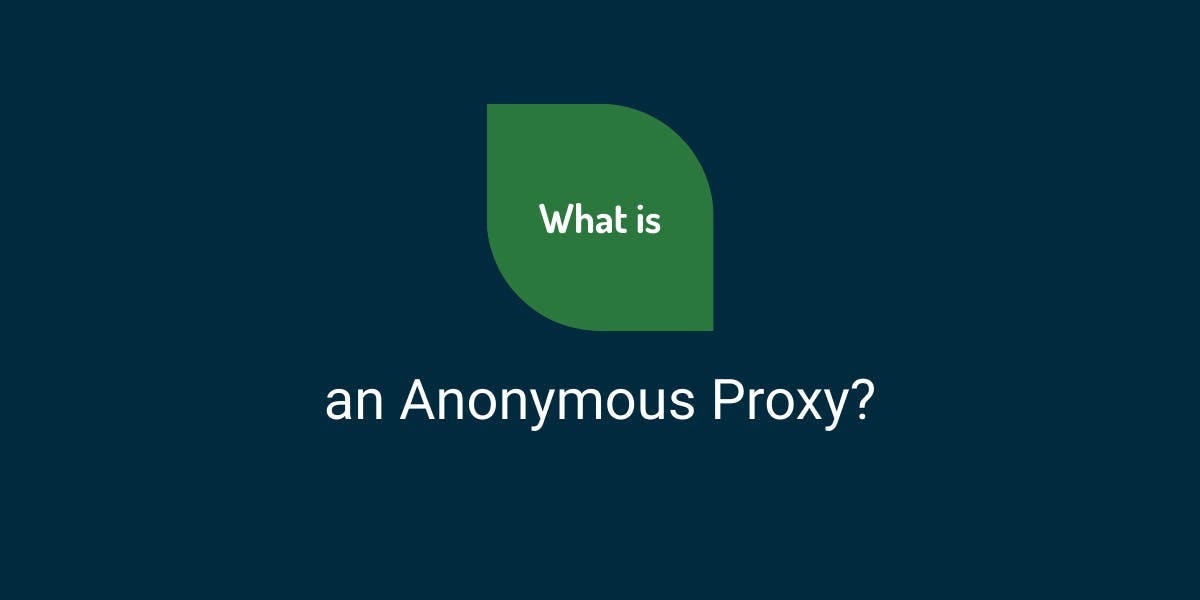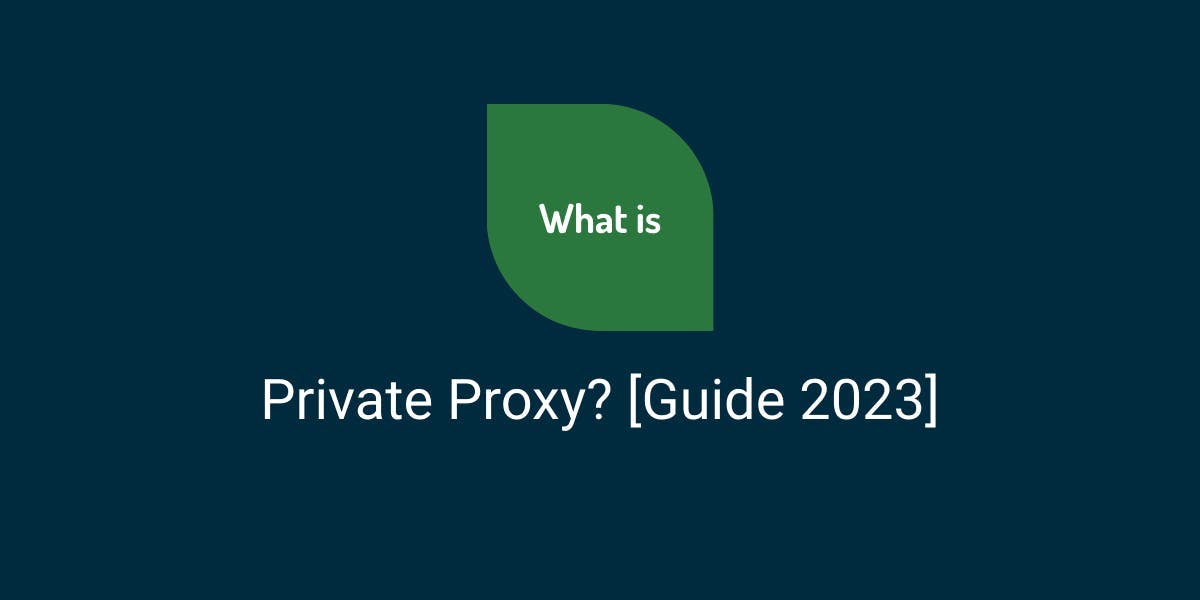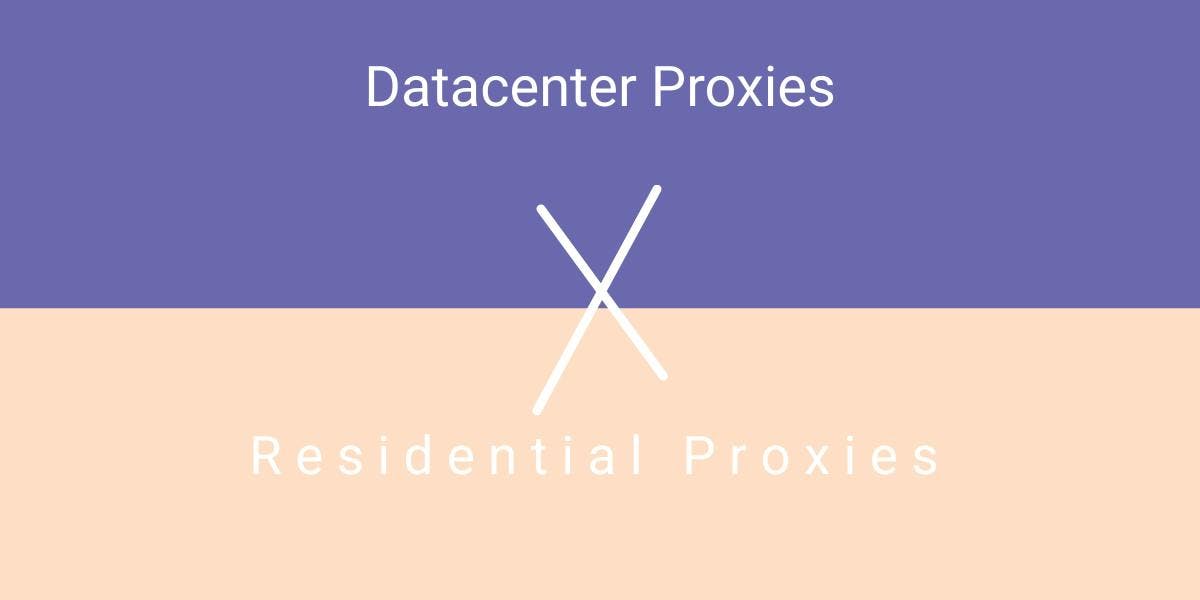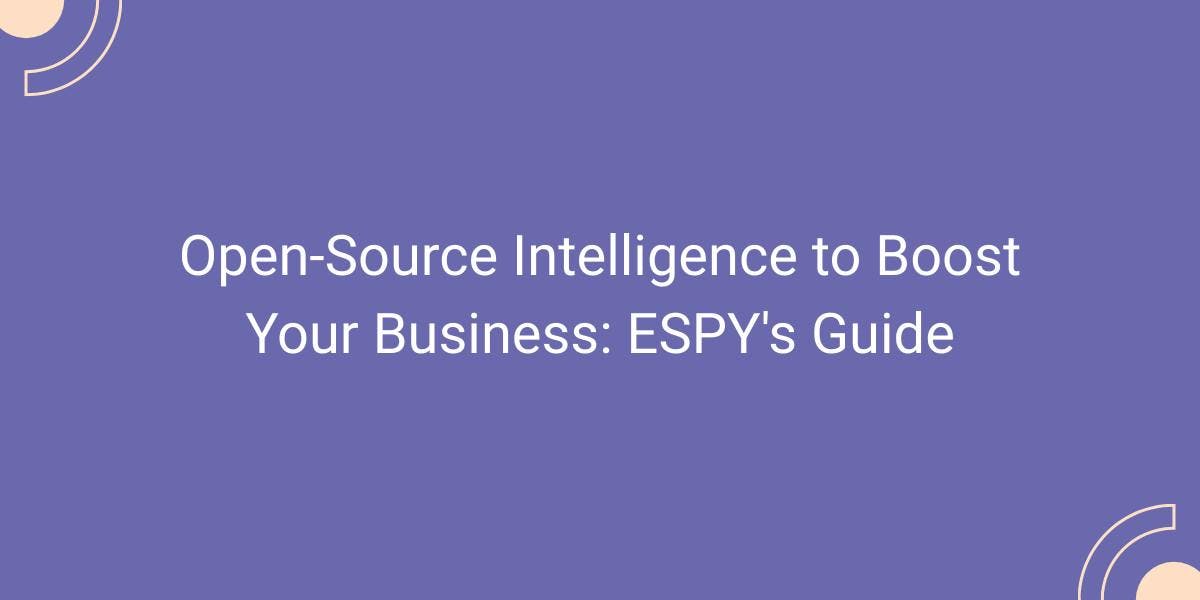What Is an Anonymous Proxy?
Flipnode on Apr 10 2023

Online security is undoubtedly one of the strengths of proxy servers, and anonymous proxies are no exception. These types of proxies serve as intermediaries between you and the web server, just like many other proxy servers. However, what you may not know is that different types of proxies provide varying levels of anonymity, and anonymous proxies are specifically designed to offer the highest level of privacy.
In this blog post, we will delve into the various types of proxy anonymity and examine the different use cases for anonymous proxies. Additionally, we will discuss the pros and cons of using free anonymous proxies, as well as the risks associated with them. By the end of this article, you will have a better understanding of how anonymous proxies work and whether they are the right choice for your online security needs.
Levels of proxy anonymity
When it comes to proxies, they generally provide some level of anonymity by hiding the user's information. However, to ensure maximum anonymity, it is important to obtain proxies from reliable top-tier providers. One exception to this rule is transparent proxies, which are implemented on the server side and reveal the user's IP address, providing no anonymity at all. It is essential to understand that there are three levels of proxy anonymity, which we will explore.
Level 1: Elite proxies
Elite proxies, also referred to as high-anonymity proxies, provide the highest level of privacy compared to other types of proxies. Apart from masking the user's IP address, they also conceal the fact that a proxy is being used. This level of anonymity is ideal for sensitive data gathering tasks where businesses cannot afford any compromise on information privacy. Elite proxies achieve this by omitting identifying headers when sending requests to the destination server. Headers such as Authorization, From, Proxy-Authorization, Proxy-Connection, Via, and X-Forwarded-For might be removed to ensure complete user anonymity.
Level 2: Anonymous proxies
Anonymous proxies offer users a reasonable level of privacy by concealing their IP address, but the destination server can still detect the presence of a proxy. Some headers, like the Via header, might be passed along to the server. As a result, websites can still identify anonymous proxies, which might lead to their blocking. This situation calls for a more advanced solution that provides a higher level of anonymity, such as elite proxies. These proxies conceal the fact that the user is employing a proxy, and they are perfect for sensitive data gathering tasks that require maximum privacy.
However, using elite proxies might not be an option for everyone due to their high costs, and it is not always necessary for less critical tasks. A more affordable alternative to elite proxies is proxy server rotation. This technique involves using a large pool of proxies that rotates each time a request is made to the destination server, making it harder for the server to detect and block the proxy. With this method, the user can maintain anonymity without having to break the bank, and it is an effective way to bypass restrictions on anonymous proxies imposed by some websites
Level 3: Transparent proxies
Transparent proxies do not offer any privacy or anonymity to the user. When a user connects to a website through a transparent proxy, the proxy server will include the user's IP address in the X-Forwarded-For header, while the Via header will reveal the proxy IP address.
You might be curious about why transparent proxies exist in the first place. Generally, transparent proxies are implemented on the server-side, and the user is usually unaware that their connection is being routed through a proxy. Transparent proxies are commonly used for traffic management purposes and can help reduce network congestion by caching frequently accessed content. However, since transparent proxies do not provide any privacy or anonymity to users, they are not recommended for any use case that requires anonymity or security.
Anonymous proxies for personal and business uses
Anonymous proxies are versatile tools that can be used for both personal and business purposes. Their primary function is to protect the user's IP address, which makes them useful for a wide range of use cases.
For personal use, anonymous proxies can be beneficial in several ways. They can help enhance the browsing experience by allowing users to avoid targeted ads and bypass geo-restrictions. Anonymous proxies also protect search histories, which is a significant preventative measure against identity theft.
When it comes to business applications, anonymous proxies are not always the best choice. While they can hide the user's IP address, they cannot mimic a regular internet user, which limits their use cases. As a result, anonymous proxies are only suitable for general business use cases, such as scraping competitive data or conducting brand research.
For example, if a company wishes to monitor customer reviews of their brand, anonymous proxies might work just fine. However, many review sites block proxies with CAPTCHAs and IP blocks, which can be challenging for anonymous proxies to bypass. In these cases, companies might need to use elite proxies, which provide a higher level of anonymity.
In general, it is essential to carefully assess the activities for which you plan to use an anonymous proxy. While anonymous proxies are suitable for personal use and some general business situations, they might fall short of more complex tasks. Therefore, it's always best to consider your specific needs before deciding which type of proxy to use
Should I use free anonymous proxies?
As we've previously mentioned, while some proxy servers may come with a higher price tag, others might argue that free proxies are a more viable option. However, this option should be approached with caution. Although free proxies may seem like an attractive alternative, they can be unreliable, dangerous, and often not worth the risk.
One of the most significant issues with free proxies is that they rarely support HTTPS connections, which are essential for secure browsing. Without this encryption, your online activities may be monitored, and your privacy could be compromised. Additionally, free proxies may have access to your cookies, which can be a security risk. While a reputable proxy provider with robust customer privacy protocols can prevent this from being an issue, this is not always the case with free proxies.
Furthermore, premium proxy providers go to great lengths to ensure their clients have access to top-quality services, whereas the same cannot be said for free proxies. In fact, studies have shown that the vast majority of publicly accessible proxies are either unreliable or contain malicious software.
For these reasons, it is highly recommended that you use proxies from a trustworthy top-tier provider. This way, you can carry out your tasks with confidence, knowing that your privacy is protected, and your data is secure. While free proxies may seem like an attractive option, the risks associated with them far outweigh the potential benefits.
Wrapping up
Anonymous proxies can be a great pick for those seeking a straightforward proxy solution that disguises the IP address. However, it's crucial to evaluate the complexity of your task before choosing a proxy server. Indeed, some of your tasks might require more sophisticated proxies. If you want a seamless and hassle-free experience, be sure to do your research and pick wisely.



